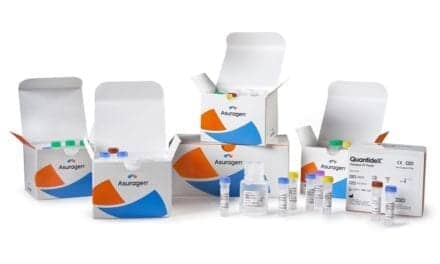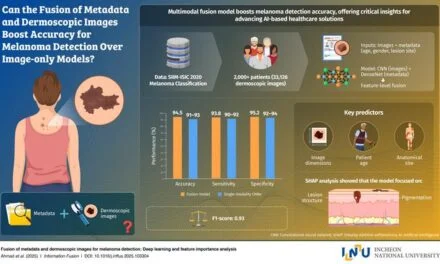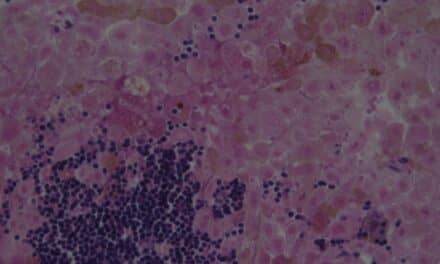DermaSensor Inc. announced FDA clearance for its real-time, non-invasive skin cancer evaluation system, which detects common skin cancers melanoma, basal cell carcinoma, and squamous cell carcinoma.
Primary care physicians (PCPs) are at the forefront of healthcare delivery, handling diverse and increasing medical concerns while playing a critical role in the early identification of disease, according to DermaSensor. To date, PCPs’ limited options for evaluating suspicious moles have been the naked eye or magnified visual examination of lesions, both of which are dependent on clinical training and subjective judgment.(1) But now, physicians can use DermaSensor’s AI-powered spectroscopy technology to non-invasively evaluate cellular and subcellular characteristics of a lesion in question for skin cancer. The wireless, handheld device then provides an immediate, objective result using an FDA-cleared algorithm.
The FDA pivotal study of over 1,000 patients, led by the Mayo Clinic across 22 study centers to validate device performance, showed that the device had a sensitivity of 96% across all 224 skin cancers, the company says. A negative result had a 97% chance of being benign for all skin cancers.(2) In a companion clinical utility study with 108 physicians, the DermaSensor device was found to decrease the number of missed skin cancers by half (from 18% to only 9%), increasing the physicians’ accuracy and confidence in assessing cancerous lesions.(3)
Further reading: Skin Cancer Diagnoses Using AI are Reliable
“We are entering the golden age of predictive and generative artificial intelligence in healthcare, and these capabilities are being paired with novel types of technology, like spectroscopy and genetic sequencing, to optimize disease detection and care,” says Cody Simmons, co-founder and Chief Executive Officer of DermaSensor. “Equipping PCPs, the most abundant clinicians in the country, to better evaluate the most common cancer in the country has been a major, long-standing unmet need in medicine. While dozens of companies have attempted to address this problem in recent decades, we are honored to be the first device cleared by the FDA that provides PCPs with an automated tool for evaluation of suspicious lesions.”
The benefits are as much for dermatologists as they are for PCPs. DermaSensor is expected to improve primary care and dermatology collaboration, enabling better-prioritized referrals in addition to the referral of more patients with skin cancer. The company has conducted 13 clinical studies in the last decade, six of which provided the principal support for FDA clearance.
“Achieving this medical milestone is a testament to the 12 years and tens of millions of dollars our company has invested in research and development to bring this powerful technology to market,” says Maurice Ferre, MD, co-founder and chairman of DermaSensor. “We are incredibly grateful to the FDA for their collaboration and dedication to this area starting with our first FDA pre-submission meeting in 2016. Having begun patient enrollment in our FDA pivotal study in mid-2020, we are now ecstatic to have clearance of our FDA-Breakthrough Designated De Novo submission.”
References:
- Dinnes J, Deeks JJ, Grainge MJ, et al. Visual inspection for diagnosing cutaneous melanoma in adults. Cochrane Database of Systematic Reviews. 2018;12:CD013194.
- Merry SP, Chatha K, Croghan I, Nguyen VL, McCormick B, Leffel D. Clinical Performance of Novel Elastic Scattering Spectroscopy (ESS) in Detection of Skin Cancer: A Blinded, Prospective, Multi-Center Clinical Trial. J Clin Aesthet Dermatol 2023 April: 16(4 Suppl): s16.
- Seiverling EV, Agresta T, Cyr P, Caines L, Nguyen VL, Chatha K, Siegel DM. Clinical Utility of an Elastic Scattering Spectroscopy Device in Assisting Primary Care Physician’s Detection of Skin Cancers. J Clin Aesthet Dermatol 2023 April: 16(4 Suppl): s16-17.





